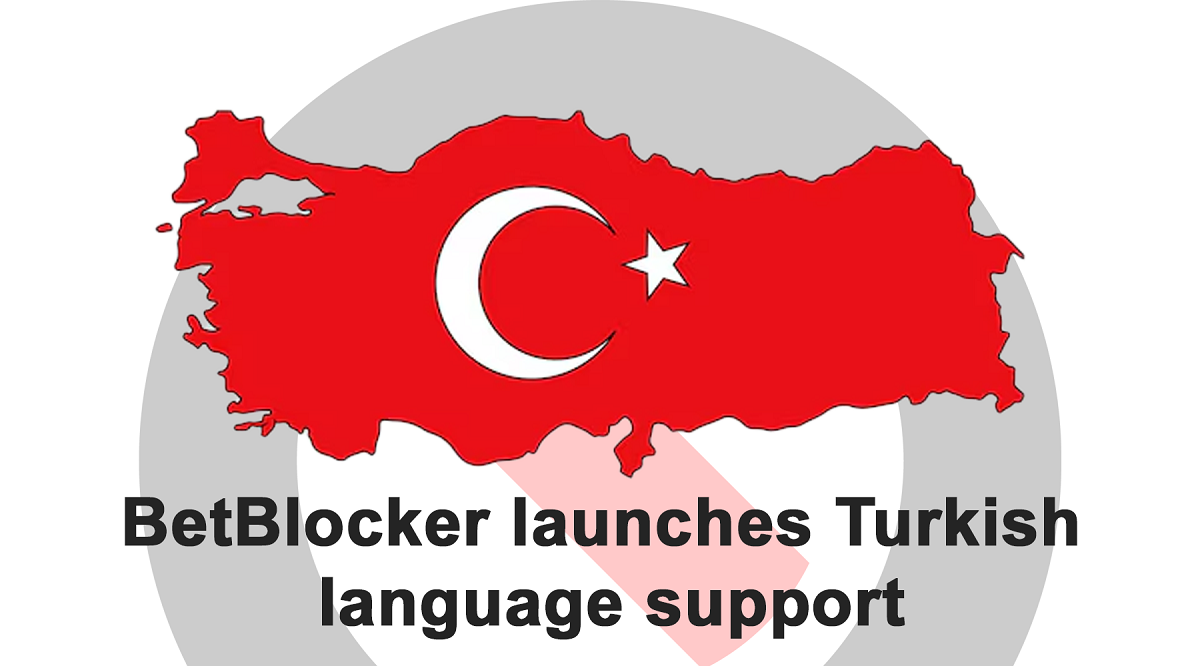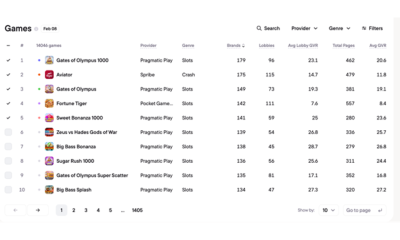Industry News
Lottery must act to protect its market share, or risk losing it

The lottery sector must stick together to protect its market share and fight off the existential threat caused by global lockdown, according to Spinola Gaming CEO Ade Repcenko.
A small number of retail and online providers currently drive the industry from a technology aspect. In most cases, a lottery will only utilise one provider and they are locked into long term agreements which prohibit the use of external or additional technologies. These restrictive agreements make it harder for state-run operators to get online and continue to generate revenue, as their existing providers don’t have the appropriate technologies or capabilities to get clients online quickly.
Repcenko explains how this has to change for the industry to survive the existential challenge of Covid-19 lockdown. “In a time when people are keeping their distance, it’s important that we stick together to make sure lottery survives, not dies,” he explained. “It’s time for the lottery sector to unite and join forces, to help each other and our clients for the greater good by working together on utilizing technologies that enable all of us to add value to our existing relationships, which helps our clients continue to raise funds and generate revenues for good causes. Most importantly, we cannot let alternate options become more attractive to players than the games they are used to playing every week.”
As the global lottery sector faces its biggest ever challenge, the solutions provider CEO believes the industry is being forced to make the shift online earlier than planned. For many, it would have been an inevitability over the next 3-5 years, but with retail now unable to sell tickets, that process has to be accelerated. Most operators are backed into a corner through long term retail relationships, with such relationships being the cornerstone to sales for the past decades, but now that model has to adapt.
“Operators could take a leaf out of the online casino business model that treats affiliates in the same way that retailers are to lotteries. The affiliate model is easily implemented, requires no new forms of technology or advanced development and allows both operator and retailer to take advantage of the current situations,” suggested Repcenko. “At the same time, operators need to appeal to their existing software providers to look at ways in which they can remain active during these troubled times and will require a level of compromise from both sides. Operators need to look at new forms of revenue sharing to allow for the affiliate model to work and software providers need to open up to working with new and modern forms of technology to be able to provide the level of service that these state run operators very desperately need right now.”
The online sector has proven to be much more resistant to the current climate than retail, as is shown by the growth of third-party operators. However, to compete with these companies, there are many innovative digital lottery solutions on the market to help national operators and their software providers get online quickly. As lottery players begin to adapt to the global lockdown by moving online, the traditional lottery sector must do the same to keep their market share, or else it could be gone by the time retail reopens.
Powered by WPeMatico
BetBlocker
New Turkish-language tool from BetBlocker extends service to 90 million additional people

Gambling harm prevention charity BetBlocker today reveals the extension of their award-winning assistance into Turkish.
In 2025, BetBlocker saw a tremendous increase in support, with more than three hundred thousand individual users initiating a block throughout the year. This significant level of engagement has been made possible by the diverse array of languages into which the charity has translated its assistance.
Yesilay, the main Turkish support service, reports that requests for help with gambling are now surpassing those for alcohol, drugs, or tobacco, alongside significant uptake and harm among youth, making the launch of Turkish language support timely and relevant.
Founder and Trustee for BetBlocker, Duncan Garvie, offered these comments: “BetBlocker is genuinely excited to roll out our second language expansion of 2026.
We’ve experienced phenomenal uptake of the service over the last 12 months and figures hare steadily rising. One of the biggest drivers of that growth has been improving the accessibility of our support by meeting users where they are and offering support in the language that they’re most comfortable accessing in.
Alongside Turkey itself, there are substantial Turkish speaking communities across Europe, the Middle East and North America. It is our hope that this evolution of BetBlocker will ensure that a deeper level of support is available more widely across the Turkish diaspora.
BetBlocker would like to offer our deepest thanks to Fatmatuz Zehra Pehlivan, a Clinical Psychologist and researcher, who volunteers Green Cresent in the field of addiction treatment. Fatmatuz volunteered her time to help translate our app, and every Turkish language user we support owe her their thanks for the donation of her time and expertise.
As with many of the communities BetBlocker now supports, we would not be able to reach so many people without the kindness and generosity of field experts like Fatmatuz.”
The post New Turkish-language tool from BetBlocker extends service to 90 million additional people appeared first on Eastern European Gaming | Global iGaming & Tech Intelligence Hub.
Anastasia Rimskaya Chief Account Officer at Aviatrix
Aviatrix Launches New Loot Boxes to Deepen Progression and Reward Paths

Aviatrix has launched a new Loot Box feature for its premier crash game, presenting collectible rewards, free bets, and progression bonuses aimed at boosting long-term player engagement.
Loot Boxes are granted through a daily rewards mechanism, with players obtaining them according to their in-game actions and advancement. Every box holds a variety of rewards, such as aircraft skins, complimentary bets, and aviation experience points.
The feature enhances Aviatrix’s developing loyalty system, providing players with fresh options to personalize their aircraft and earn rewards through continuous engagement.
Anastasia Rimskaya, Chief Account Officer at Aviatrix, said: “Loot Boxes are part of our wider vision for Aviatrix as a connected multi-game universe. As we expand our iGaming Metaverse, features like Loot Boxes add another meaningful layer to how players build their profile, customise their aircraft and earn rewards across the ecosystem.”
Unveiled in February, the Aviatrix iGaming Metaverse signifies the supplier’s shift from a standalone crash game to an integrated multi-title ecosystem.
Starting with the imminent debut of Aviatrix Second Chance and continuing with upcoming titles like Aviatrix Fruits and Aviatrix Mines, every game will utilize a single integrated player profile, progression system, and rewards and achievements framework.
The post Aviatrix Launches New Loot Boxes to Deepen Progression and Reward Paths appeared first on Eastern European Gaming | Global iGaming & Tech Intelligence Hub.
Alec Gehlot Chief Executive Officer at PlaySignal
PlaySignal Debuts: Alec Gehlot’s New Sophisticated Responsible Gaming Platform

Alec Gehlot, previous senior executive at Optimove, has introduced PlaySignal, a responsible gaming platform aimed at assisting operators in identifying and addressing player risk promptly.
PlaySignal employs a traffic-light system featuring green, amber, and red signals to steer player conduct and indicate when behaviors start to enter higher-risk areas. The platform seeks to minimize avoidable exclusions by offering operators enhanced visibility of rising risks, while simultaneously giving players more understanding of how their actions are evaluated.
Leveraging behavioural analytics, PlaySignal tracks player actions during gameplay and displays information as distinct signals. This allows teams to act earlier and react more appropriately as risk evolves.
The product connects with current operator systems to assist responsible gaming, CRM, and compliance teams by providing a unified view of activities, encouraging a more uniform strategy among teams as regulatory demands grow in important markets.
Building on his time at Optimove, where he collaborated with operators on segmentation, retention, and user engagement, Gehlot recognized a demand for innovative tools to enhance player protection as regulatory and tax pressures mount in regulated markets.
The company launched PlaySignal at ICE earlier this year, where it was a contender in the Innovators Challenge, and initiated talks with operators in various markets. The initial launch will concentrate on the UK prior to global expansion.
Alec Gehlot, Chief Executive Officer at PlaySignal, said: “Regulation and taxation are only moving in one direction, and operators need new tools to adapt. Player protection can no longer be treated as a compliance obligation; it has to become a competitive differentiator.
“Regulated operators are under real pressure, particularly in the UK, and we believe giving them earlier visibility of risk is essential not just for protection, but for long-term sustainability.”
The post PlaySignal Debuts: Alec Gehlot’s New Sophisticated Responsible Gaming Platform appeared first on Eastern European Gaming | Global iGaming & Tech Intelligence Hub.
-

 Asia7 days ago
Asia7 days agoBooks on Wheels: DigiPlus Foundation Brings Mobile Library to Boost Literacy Among Aurora’s Young Learners
-

 Latest News7 days ago
Latest News7 days agoGGBET UA hosts Media Game – an open FC Dynamo Kyiv training session with journalists from sports publications
-

 Latest News7 days ago
Latest News7 days agoSlots dominate Brazil’s casino catalog, but crash games capture outsized player demand,Blask data reveals
-

 Ca$hline7 days ago
Ca$hline7 days agoCaesars Entertainment Launches First Proprietary Online Slot, Ca$hline
-

 Latest News7 days ago
Latest News7 days agoRocketPlay won European Marketing Campaign of the Year – B2C at the 2026 EGR Europe Awards
-

 Latest News7 days ago
Latest News7 days agoBagelmania Backroom Comedy night lineup announced for Thursday, Feb. 26
-

 Baltics4 days ago
Baltics4 days agoHIPTHER Baltics Launches in Vilnius with Agenda Revealing Lithuania’s 2026 Regulatory Reset
-

 Amusnet4 days ago
Amusnet4 days agoAmusnet Enters into Strategic Partnership with Twinsbet Arena in Vilnius, Lithuania



















